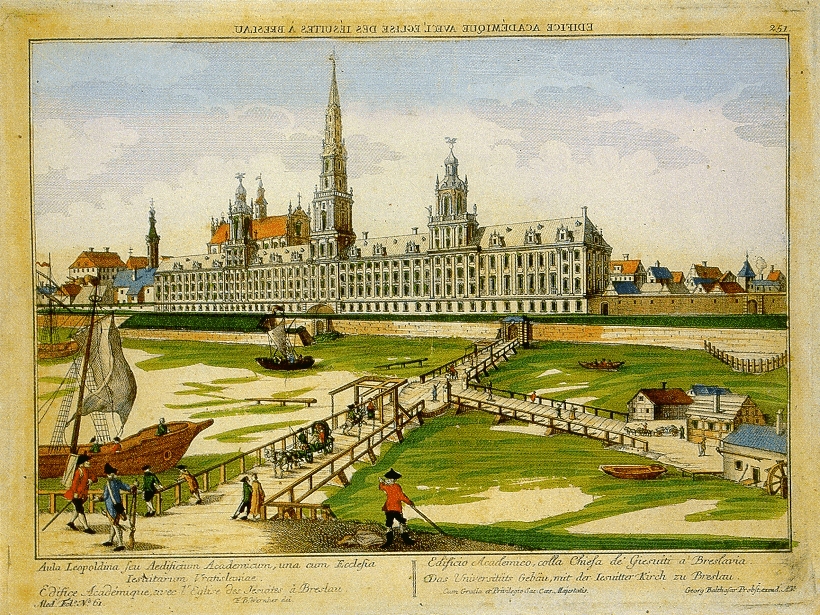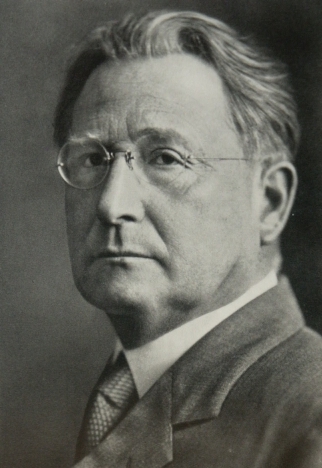|
Hugo Blümner
Hugo Blümner (9 August 1844, in Berlin – 1 January 1919, in Zürich) was a German classical archaeologist and philologist. Biography Blümner studied with Otto Jahn in Bonn and wrote his doctoral thesis 1866 in Berlin on Lucian.''De locis Luciani ad artem spectantibus: particula prima''. Berlin Univ., Diss., 1866. (Latin) He taught in the universities of Breslau and Königsberg, and after 1877 was professor in the University of Zürich. He is author and editor of many philological and archaeological works, of which the most important are: ''Die gewerbliche Thätigkeit der Völker des klassischen Altertums'' (The commercial activities of the peoples of classical history; 1869), ''Technologie und Terminologie der Gewerbe und Künste bei Griechen und Römern'' (Technology and terminology of trade and the arts in Greece and Rome; 4 vols., 1874–88), ''Leben und Sitten der Griechen'' (Life and customs of the Greeks; 1887), ''Der Maximaltarif des Diokletian'', with Theodor Mommsen ... [...More Info...] [...Related Items...] OR: [Wikipedia] [Google] [Baidu] |
University Of Wrocław
The University of Wrocław (, UWr; ) is a public research university in Wrocław, Poland. It is the largest institution of higher learning in the Lower Silesian Voivodeship, with over 100,000 graduates since 1945, including some 1,900 researchers, among whom many have received the highest awards for their contributions to the development of scientific scholarship. The university was reconstituted in its current form in 1945, as a direct successor to the previous German University of Breslau. Following the territorial changes of Poland's borders, academics primarily from the Jan Kazimierz University of Lwów restored the university building, which had been heavily damaged in the 1945 Battle of Breslau. History Leopoldina The oldest mention of a university in Wrocław comes from the foundation deed signed on 20 July 1505 for the ''Generale litterarum Gymnasium'' in Wrocław by King Vladislaus II of Hungary () of the Polish Jagiellonian dynasty. However, the new academic ... [...More Info...] [...Related Items...] OR: [Wikipedia] [Google] [Baidu] |
University Of Zürich
The University of Zurich (UZH, ) is a public university, public research university in Zurich, Switzerland. It is the largest university in Switzerland, with its 28,000 enrolled students. It was founded in 1833 from the existing colleges of theology, law, medicine which go back to 1525, and a new Faculty (division), faculty of philosophy. Currently, the university has seven faculties: Philosophy, Medicine, Human Medicine, Economic Sciences, Law, Mathematics and Natural Sciences, Theology and Veterinary Medicine. The university offers the widest range of subjects and courses of any Swiss higher education institution. History The University of Zurich was founded on April 29, 1833, when the existing colleges of theology, the Carolinum, Zurich, ''Carolinum'' founded by Huldrych Zwingli in 1525, law and medicine were merged with a new faculty of Philosophy. It was the first university in Europe to be founded by the state rather than a monarch or church. Its Latin name is reminiscen ... [...More Info...] [...Related Items...] OR: [Wikipedia] [Google] [Baidu] |
Academic Staff Of The University Of Königsberg
An academy (Attic Greek: Ἀκαδήμεια; Koine Greek Ἀκαδημία) is an institution of tertiary education. The name traces back to Plato's school of philosophy, founded approximately 386 BC at Akademia, a sanctuary of Athena, the goddess of wisdom and Skills, skill, north of Ancient Athens, Athens, Greece. The Royal Spanish Academy defines academy as scientific, literary or artistic society established with public authority and as a teaching establishment, public or private, of a professional, artistic, technical or simply practical nature. Etymology The word comes from the ''Academy'' in ancient Greece, which derives from the Athenian hero, ''Akademos''. Outside the city walls of Athens, the Gymnasium (ancient Greece), gymnasium was made famous by Plato as a center of learning. The sacred space, dedicated to the goddess of wisdom, Athena, had formerly been an olive Grove (nature), grove, hence the expression "the groves of Academe". In these gardens, the philos ... [...More Info...] [...Related Items...] OR: [Wikipedia] [Google] [Baidu] |
Archaeologists From Berlin
Archaeology or archeology is the study of human activity through the recovery and analysis of material culture. The archaeological record consists of artifacts, architecture, biofacts or ecofacts, sites, and cultural landscapes. Archaeology can be considered both a social science and a branch of the humanities. It is usually considered an independent academic discipline, but may also be classified as part of anthropology (in North America – the four-field approach), history or geography. The discipline involves surveying, excavation, and eventually analysis of data collected, to learn more about the past. In broad scope, archaeology relies on cross-disciplinary research. Archaeologists study human prehistory and history, from the development of the first stone tools at Lomekwi in East Africa 3.3 million years ago up until recent decades. Archaeology is distinct from palaeontology, which is the study of fossil remains. Archaeology is particularly important ... [...More Info...] [...Related Items...] OR: [Wikipedia] [Google] [Baidu] |
German Philologists
German(s) may refer to: * Germany, the country of the Germans and German things **Germania (Roman era) * Germans, citizens of Germany, people of German ancestry, or native speakers of the German language ** For citizenship in Germany, see also German nationality law **Germanic peoples (Roman era) * German diaspora * German language * German cuisine, traditional foods of Germany People * German (given name) * German (surname) * Germán, a Spanish name Places * German (parish), Isle of Man * German, Albania, or Gërmej * German, Bulgaria * German, Iran * German, North Macedonia * German, New York, U.S. * Agios Germanos, Greece Other uses * German (mythology), a South Slavic mythological being * Germans (band), a Canadian rock band * "German" (song), a 2019 song by No Money Enterprise * ''The German'', a 2008 short film * "The Germans", an episode of ''Fawlty Towers'' * ''The German'', a nickname for Congolese rebel André Kisase Ngandu See also * Germanic (disambig ... [...More Info...] [...Related Items...] OR: [Wikipedia] [Google] [Baidu] |
1919 Deaths
Events January * January 1 ** The Czechoslovak Legions occupy much of the self-proclaimed "free city" of Bratislava, Pressburg (later Bratislava), enforcing its incorporation into the new republic of Czechoslovakia. ** HMY Iolaire, HMY ''Iolaire'' sinks off the coast of the Hebrides; 201 people, mostly servicemen returning home to Lewis and Harris, are killed. * January 2–January 22, 22 – Russian Civil War: The Red Army's Caspian-Caucasian Front begins the Northern Caucasus Operation (1918–1919), Northern Caucasus Operation against the White Army, but fails to make progress. * January 3 – The Faisal–Weizmann Agreement is signed by Faisal I of Iraq, Emir Faisal (representing the Arab Kingdom of Hejaz) and Zionism, Zionist leader Chaim Weizmann, for Arab–Jewish cooperation in the development of a Jewish homeland in Palestine (region), Palestine, and an Arab nation in a large part of the Middle East. * January 5 – In Germany: ** Spartacist uprising in ... [...More Info...] [...Related Items...] OR: [Wikipedia] [Google] [Baidu] |
1844 Births
In the Philippines, 1844 had only 365 days, when Tuesday, December 31 was skipped as Monday, December 30 was immediately followed by Wednesday, January 1, 1845, the next day after. The change also applied to Caroline Islands, Guam, Marianas Islands, Marshall Islands and Palau as part of the Captaincy General of the Philippines; these became the first places on Earth to redraw the International Date Line. Events January–March * January 4 – The first issue of the Swedish-languaged ''Saima'' newspaper founded by J. V. Snellman is published in Kuopio, Finland. * January 15 – The University of Notre Dame, based in the city of the same name, receives its charter from Indiana. * February 27 – The Dominican Republic gains independence from Haiti. * February 28 – A gun on the USS ''Princeton'' explodes while the boat is on a Potomac River cruise, killing U.S. Secretary of State Abel Upshur, U.S. Secretary of the Navy Thomas Walker Gilmer and four other people. ... [...More Info...] [...Related Items...] OR: [Wikipedia] [Google] [Baidu] |
Emil Ermatinger
Emil Ermatinger (21 May 1873 in Schaffhausen, Switzerland – 17 September 1953 in Zurich) was a Swiss professor for Germanic philology. Ermatinger studied classical philology in Zurich and Berlin. 1897 he wrote his Ph.D. thesis at the University of Zurich.''Die attische Autochthonensage bis auf Euripides. Mit einer einleitenden Darstellung der Bedeutung und Entwicklung der attischen Sage bis auf Euripides''. Berlin: Mayer und Müller, 1897. (Diss. Univ. Zürich, 1897.) His doctoral advisor was the classical archaeologist and philologist Hugo Blümner. 1909 Ermatinger became a professor for Germanic philology at ETH Zurich. 1912 till 1943 he was professor at the University of Zurich. 1939 he was visiting professor at the Columbia University in New York City. References Works *''Gottfried Kellers Leben, Briefe und Tagebücher. Aufgrund der Biographie Jakob Baechtolds dargestellt'', 3 vol., 1915–18. *''Die deutsche Lyrik in ihrer geschichtlichen Entwicklung von Herder A her ... [...More Info...] [...Related Items...] OR: [Wikipedia] [Google] [Baidu] |
Karl Friedrich Hermann
Karl Friedrich Hermann (4 August 1804 – 31 December 1855) was a German classical scholar and antiquarian, antiquary. Biography He was born at Frankfurt-am-Main. Having studied philosophy at the universities of university of Heidelberg, Heidelberg and university of Leipzig, Leipzig (and taking a degree in 1824), he went on a tour of Italy; on his return from which he lectured as ''privatdozent'' in Heidelberg. In 1832 he was appointed professor of classical philology at the University of Marburg, and in 1833 received the additional offices of second librarian at the university, and director of the philological seminary. In 1842 he transferred to university of Göttingen, Göttingen as the chair of philology and archaeology, vacant by the death of Karl Otfried Müller, Otfried Müller. At Göttingen, his colleagues were Friedrich Wilhelm Schneidewin, Ernst von Leutsch and Friedrich Wieseler. Works His knowledge of all branches of classical learning was profound, but he was chie ... [...More Info...] [...Related Items...] OR: [Wikipedia] [Google] [Baidu] |
Theodor Mommsen
Christian Matthias Theodor Mommsen (; ; 30 November 1817 – 1 November 1903) was a German classical scholar, historian, jurist, journalist, politician and archaeologist. He is widely regarded as one of the greatest classicists of the 19th century. He received the 1902 Nobel Prize in Literature for his historical writings, including '' The History of Rome'', after having been nominated by 18 members of the Prussian Academy of Sciences. He was also a prominent German politician, as a member of the Prussian and German parliaments. His works on Roman law and on the law of obligations had a significant impact on the German civil code. Life Mommsen was born to German parents in Garding in the Duchy of Schleswig in 1817, then ruled by the king of Denmark, and grew up in Bad Oldesloe in Holstein, where his father was a Lutheran minister. He studied mostly at home, though he attended the Gymnasium Christianeum in Altona for four years. He studied Greek and Latin and receive ... [...More Info...] [...Related Items...] OR: [Wikipedia] [Google] [Baidu] |





